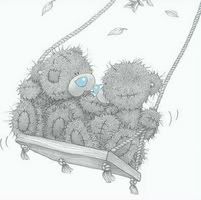Economics
I have just came back from an economics lecture held in the middle of the night (thankfully a 1 off thing).
Now, my economics lecturer is a really funny lecturer and he is definitely the best of all my lecturers (which is also why I decided to drop stats to go to his classes). Now I kinda understand why Chicago is famous for economics, but not so much for the rest. My math lecturers love mumbling to themselves, while the economics teachers I have here are fabulous. Taking both Econs 199(Macroeconomics) and Econs 200(Economic analysis) this quarter, I can say that I've enjoyed every single economics lesson so far.
For example, he was talking about how dunno which state imposed a law to make seat belts compulsory. In the end, the casualty probability dropped, but the accident rate increased, with more people dying in accidents as a result. Apparently the accident rate increased because people with seat belts drove more recklessly (much like how after buy laptop theft insurance people tend to care less about safeguarding their laptops).
Anyway, he related a story where he was invited to Penn as a guest speaker. At the airport, he was met by an economics major from Penn who escorted him, and when they reached her car, she reminded him to fasten his seat belt. To which, he replied
'Why do you want me to put on my seat belt'
'I would you like you to be safe'
And finally he said, well, than I hope you can take off your seat belt. The situation where the driver unfastens the seat belt, and he fastens his, is in fact, the safest for him!
Opportunity cost refers to the cost of the most expensive of alternatives. So in making decisions, people tend to do something if it's opportunity cost is less than the utility(happiness) gained from doing it. Eg. Suppose you are on a date, and your date is driving you home. Do you sit in the front seat or the back seat? The back seat being more dangerous. Well, that depends on what you value. Some people do not mind being labelled as social freaks or having their first date become their last date, and get more utility from the comfort in knowing that there is a lower probability to die in the event of an accident by sitting in the back seat. Most others, however, would choose to sit in the front seat.
Or when a person says "I love you", it could actually mean "Well, I am tired of looking for others and you're ok and the amount of extra effort(marginal cost) I would spend to scout around more is not worth the extra amount of happiness I could gain (marginal benefit)"
Anyway, I'll end off with something to someone:
I'm tired of being
Like a Chinese in Malaysia
The opportunity cost has risen
The marginal cost has exceeded the marginal utility
And I only wish I could forget you
Gideon
Now, my economics lecturer is a really funny lecturer and he is definitely the best of all my lecturers (which is also why I decided to drop stats to go to his classes). Now I kinda understand why Chicago is famous for economics, but not so much for the rest. My math lecturers love mumbling to themselves, while the economics teachers I have here are fabulous. Taking both Econs 199(Macroeconomics) and Econs 200(Economic analysis) this quarter, I can say that I've enjoyed every single economics lesson so far.
For example, he was talking about how dunno which state imposed a law to make seat belts compulsory. In the end, the casualty probability dropped, but the accident rate increased, with more people dying in accidents as a result. Apparently the accident rate increased because people with seat belts drove more recklessly (much like how after buy laptop theft insurance people tend to care less about safeguarding their laptops).
Anyway, he related a story where he was invited to Penn as a guest speaker. At the airport, he was met by an economics major from Penn who escorted him, and when they reached her car, she reminded him to fasten his seat belt. To which, he replied
'Why do you want me to put on my seat belt'
'I would you like you to be safe'
And finally he said, well, than I hope you can take off your seat belt. The situation where the driver unfastens the seat belt, and he fastens his, is in fact, the safest for him!
Opportunity cost refers to the cost of the most expensive of alternatives. So in making decisions, people tend to do something if it's opportunity cost is less than the utility(happiness) gained from doing it. Eg. Suppose you are on a date, and your date is driving you home. Do you sit in the front seat or the back seat? The back seat being more dangerous. Well, that depends on what you value. Some people do not mind being labelled as social freaks or having their first date become their last date, and get more utility from the comfort in knowing that there is a lower probability to die in the event of an accident by sitting in the back seat. Most others, however, would choose to sit in the front seat.
Or when a person says "I love you", it could actually mean "Well, I am tired of looking for others and you're ok and the amount of extra effort(marginal cost) I would spend to scout around more is not worth the extra amount of happiness I could gain (marginal benefit)"
Anyway, I'll end off with something to someone:
I'm tired of being
Like a Chinese in Malaysia
The opportunity cost has risen
The marginal cost has exceeded the marginal utility
And I only wish I could forget you
Gideon




0 Comments:
Post a Comment
<< Home